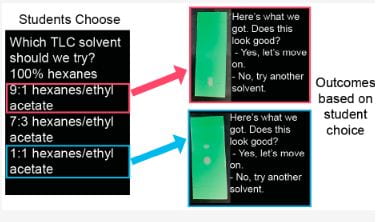Author: Peiyi Wang, M.A.
Date: November 5, 2021
Evidence continues to mount that undergraduate students are not learning what they need to succeed in academic environments, the industry, and life (Dunn et al., 2013). Furthermore, critical thinking and problem-solving skills are vital to ensure that psychology graduate students are well-equipped for research and practice. However, the undergraduate psychology curriculum places minimal focus on developing students in these two areas. This article describes various ideas for Evidence-Based Teaching Strategies (EBTS) in undergraduate psychology classrooms that have been suggested to increase students’ motivation, learning, and achievement outcomes (Bosch et al., 2021; Dunn et al., 2013).
- Repeated Testing (Schwieren et al., 2017)
It is unsurprising that testing improves memory and learning. Numerous empirical studies have confirmed the impact of testing on learning, and virtually all higher education classes incorporate one or more effective testing methods, such as open-ended and closed-ended quizzes, weekly tests using CANVAS, and in-class question practices with iClickers. However, educators might want to emphasize the benefits of employing evidence-based learning techniques, like frequent testing, and encourage students to assess themselves while studying to fully harness the positive influence of testing on learning.
For instance, students who utilized the read-recite-review strategy (Nebel, 2022) outperformed their peers on recall tests of textbook information compared to those who spent a similar amount of time re-reading or note-taking (McDaniel et al., 2009). Furthermore, instructors can enhance the testing effect by reiterating learning objectives for each course and prompting students to recapitulate each objective after their study sessions. Subsequently, students can verify their answers independently or with the assistance of their peers.
- Metacognition (Dunn et al., 2013)
Metacognition is achieved when individuals engage in critical thinking about their own thought processes, signifying a shift from externally directed learning to self-regulated learning (Bosch et al., 2021; Dimmitt & McCormick, 2012). Consequently, it enhances learning and retention. Instructors can promote the development of metacognition by encouraging students to take more critical and reflective notes, urging them to review and revise their notes after class (Dunn, 2011). This approach could be augmented by offering students extra credit points for submitting their revised notes.
Moreover, self-talk can indirectly enhance learning by fostering improved metacognition. When students are prompted to reflect on and discuss their classroom learning experiences, they are more likely to identify gaps in their knowledge (Dunn, 2011). Instructors can enhance students’ metacognitive skills by assigning them the task of recording a brief voice memo twice a week, preferably on the evening following each class.
- Writing and Learning (Chenneville and Gay, 2021; Dunn et al., 2013)
Writing undoubtedly enhances the learning process. The “writing-to-learn” technique rests upon the premise that writing about a subject can assist students in uncovering areas of difficulty or gaps in understanding, grappling with challenges, and forging connections between concepts in innovative ways (Bereiter & Scardamalia, 1987; Berninger, 2012). It has become customary for middle and upper division psychology classes to assign one or more essay tasks throughout the quarter or semester. However, writing need not be extensive or arduous to yield learning improvements. Writing can be seamlessly integrated into “questions, quotations, and talking points” (QQTPs; Connor-Greene, 2005) to foster meaningful class discussions. Preceding the class, students can craft a concise paper where they outline a question, include a relevant quotation, and formulate talking points based on the assigned reading. Instructors can then employ these papers to ignite class conversations, prompting students to use them as a springboard for discussion. Additionally, writing exercises such as minute papers, identifying the muddiest point, keeping a word diary, and engaging in imagined dialogues are all valuable projects that enhance students’ learning experience (Angelo and Cross, 1993). Lastly, an introductory psychology course demonstrated that short, ungraded writing assignments significantly elevated exam performance on the same subject matter (Nevid et al., 2012).
Conclusion
Pedagogical practices in undergraduate psychology courses are continually advancing. By incorporating the three evidence-based teaching strategies mentioned above, psychology instructors can effectively guide the path toward success and meaning for their undergraduate students.

